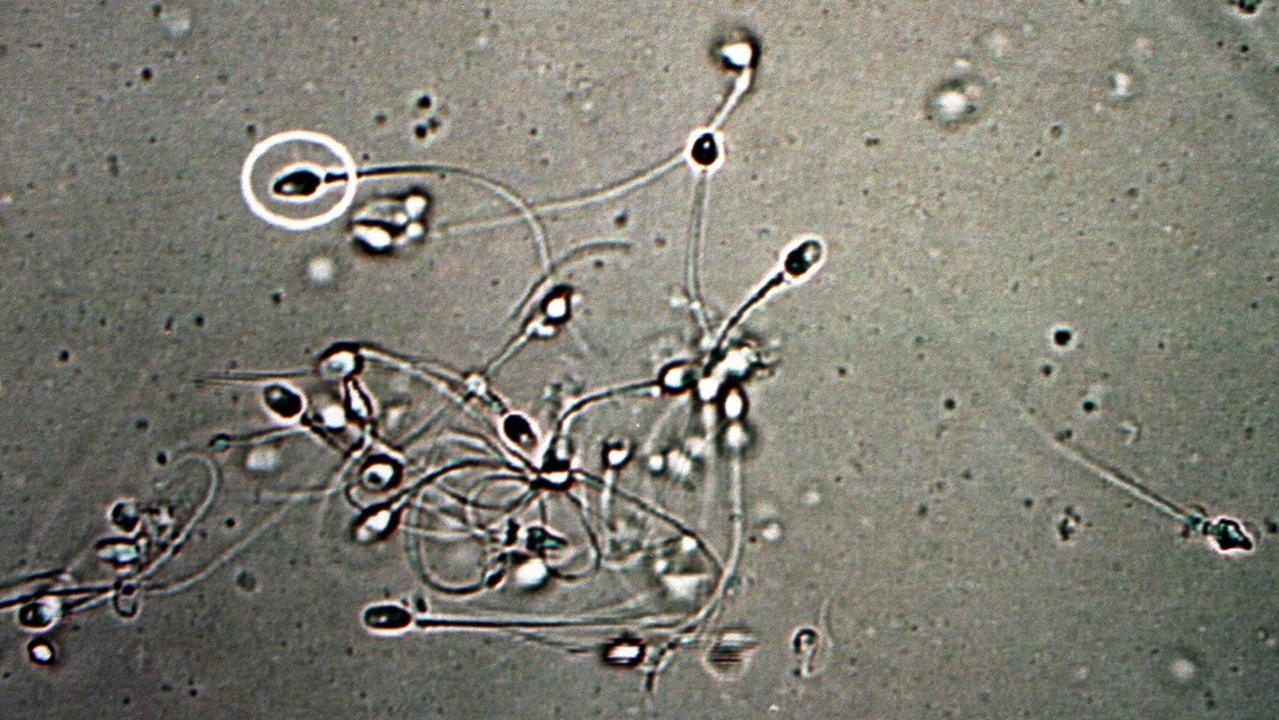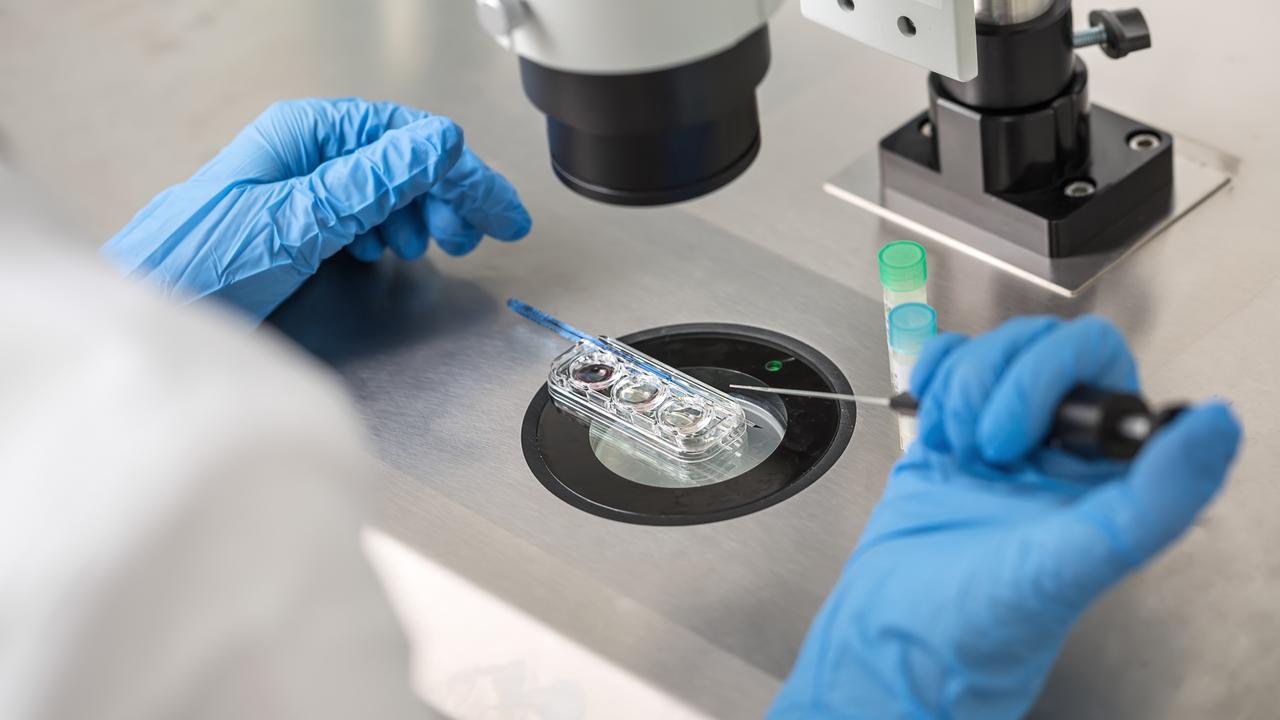Rapidly dropping sperm count ‘imperilling the future of humans’, says expert
The human race is facing an impending crisis that could signal the end of our species in just a few generations, a health expert has warned.
In merely a few generations’ time, the human race might find itself at a moment that could spell the end of our species.
As sperm counts decline to levels below those considered adequate for fertility, we may no longer be able to reproduce unless drastic lifestyle measures are taken to reverse this trend.
That’s the chilling warning from a leading reproductive epidemiologist at New York’s Mount Sinai, Dr Shanna Swan, a Professor in Environmental Medicine and Public Health, who says the sperm count of Western men has plunged by over 50 per cent in less than 40 years.
At this rate, she says in her new book Countdown, that sperm count is set to reach zero in 2045 – meaning that most couples may have to use assisted reproduction.
And, by 2060, men could have little or no reproductive capacity at all, Dr Swan warns.
The situation – which is reflected across the globe – is so concerning that Dr Swan says it is “imperilling the future of the human race”.
In an interview with BYU Radio this week, she said there were many causes behind the worrying trend.
“There are lifestyle factors, things like smoking, binge drinking, not getting enough exercise, obesity and a poor diet,” she said.
“Those things are relatively easy to control, but the other class of problems is the chemicals we use in our daily lives which we’re surrounded with.

“Those chemicals have the ability to affect our bodies’ hormones, and once you affect the hormones that affect reproduction, then you can affect reproductive health – and that’s what I think is going on.”
She said the chemicals she has studied most are phthalates – a group of chemicals used in hundreds of products from toys, vinyl flooring and wall covering to detergents and food packaging.
“Those soft plastics give up their phthalates in many ways, for example when food goes through them or they come into contact with food and then we eat that food, get it in to our bodies and that lowers testosterone,” she told BYU.
“And, if this happens when a woman is pregnant or when a man is about to conceive a child, that affect the development of that child in a way could lower his sperm count when he grows up.”
Bisphenol A (BPAs), used to harden plastic and found the lining of some canned-food containers, is another chemical of concern.
Dr Swan said BPAs are oestrogen mimicking, increased risks of fertility challenges for women.
She is not alone in her concerns. In a piece for The Conversation this week, Alex Ford, a Professor of Biology and Gary Hutchison, a Professor of Toxicology, said her claims are backed by a growing body of evidence that’s finding reproductive abnormalities and declining fertility in humans worldwide.
“Equally alarming is an increase in the rate of miscarriages and developmental abnormalities in humans, such as small penis development, intersexuality (displaying both male and female characteristics) and non-descended testes – all found to be linked to declining sperm count,” they wrote.

They wrote that “endocrine-disrupting chemicals” (EDCs) – like the phthalates Dr Swan has researched – are passed to the foetus by the mother.
“(Her) exposure to the chemicals during her pregnancy will determine the degree to which the foetus experiences hormonal interference,” they wrote.
“That means that present-day sperm count data speaks not to the chemical environment today, but to the environment as it was when those men were still in the womb. That environment is undoubtedly becoming more polluted.”
Dr Swan said that while the situation is concerning, she believes that humanity can turn things around.
She said that a promising recent study on rodents at the University of Washington showed that if there is no further exposure to EDCs over three generations, then their full fertility can be restored.
One major change, she suggests is that the chemical industry starts producing chemicals that can be used in everyday products that are non-hormonally active.
“Regrettable substitution – where one harmful chemical is replaced by another untested one, which then turns out to have the same risks – must also stop,” she told The Guardian in a recent interview. “It has happened with different phthalates, BPA and flame retardants and it is unacceptable.
She said this means that when a product has a “BPA free” label on it, it probably doesn’t have BPA, but it could have chemicals like bisphenol S or F, which have a very similar effect on our bodies.

“And we need to test the chemicals we are currently using – and not just at high doses and not just one at a time, because we are being exposed to a large number,” she added.
“We have the ingenuity and the resources to do it. But we need a recognition of the problem and the will to change.”
Some nations are beginning to take steps to address the issues – like the UK, where the Department for Environment, Food and Rural Affairs is currently building a chemicals strategy. The EU, meanwhile, is changing chemical regulations to prevent banned substances being replaced with other harmful ones.
Dr Swan said couples looking to conceive should research the effects of chemicals, and try to avoid using plastic in their kitchen as much as they can. She said to avoid microwaving or storing food in plastic.
“When it’s cold it’s not so much of a risk, but when its warm the chemicals leave the plastic,” she told BYU.
She also recommended avoiding processed food – which has often passed through a plastic tubes – and food that is stored in plastic.




